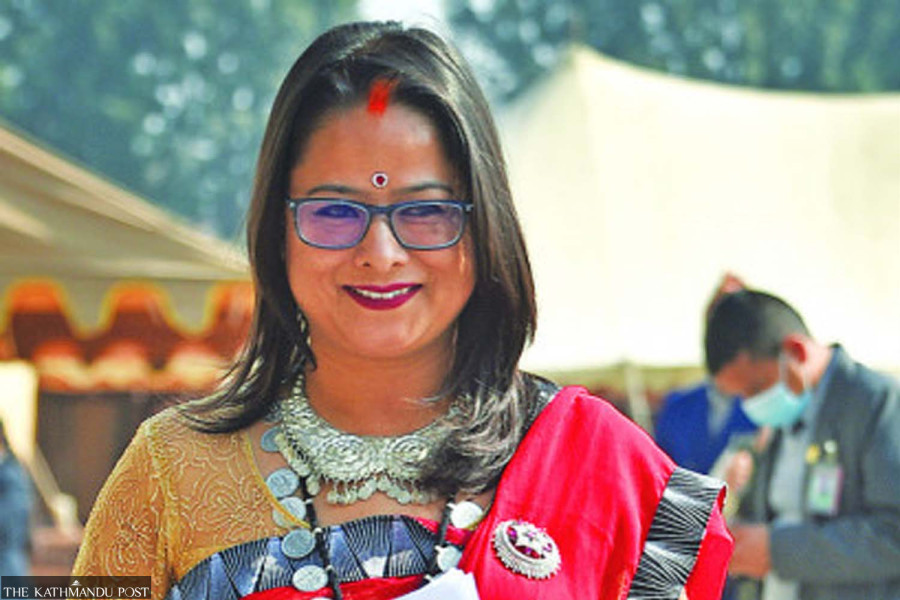Politics
Discontent brewing in ruling coalition
Parties accuse Oli and Dahal of taking decisions unilaterally. Nagarik Unmukti Party fields its own candidate for an upper house seat, going against the alliance.
Nishan Khatiwada
Six political parties—the CPN-UML, the Rastriya Swatantra Party, the Rastriya Prajatantra Party, the Janata Samajbadi Party, the Janamat Party, and the Nagarik Unmukti Party—had backed Maoist Centre chief Pushpa Kamal Dahal’s bid for premiership a month ago.
But now the seven-party alliance appears to be in danger.
Dissatisfaction had already surfaced in the alliance with some parties refusing to join the Cabinet. The Nagarik Unmukti Party has taken its umbrage a step further by fielding its own candidate for a vacant National Assembly member, challenging the ruling alliance’s candidate in the process.
Nagarik Unmukti Party leader Rajendra Bir Raya has thrown his hat in the ring for the by-election for the upper house from Lumbini province against UML’s candidate Kumar Dashaudi. The Nepali Congress has also thrown itself into the fray. A by-election is scheduled for February 8 at the Province Election Centre, Dang for the seat that went vacant after the then UML National Assembly member Khim Lal Bhattarai from Rupandehi resigned from the post ahead of November 20 polls.
“We will not withdraw our candidacy at any cost,” Nagarik Unmukti Party chair Ranjita Shrestha told the Post.
“Though we gave the vote of confidence to Prime Minister Pushpa Kamal Dahal, we are in opposition in Parliament. Until our jailed leaders are freed, we won’t join the ruling alliance,” said Shrestha.
The party is the kingmaker in the Sudurpaschim province with seven seats in the 53-strong assembly.
Party insiders say that though they supported the alliance in appointing Chief Minister, Deputy Speaker, and Speaker in the province, they will not give a vote of confidence to Chief Minister Rajendra Rawal until their demands are met.
Rawal had to rush to Kathmandu seeking help from top leaders of the ruling alliance for the floor test, after Unmukti Party leaders insisted that they wouldn't support him until their jailed leader Resham Lal Chaudhary and others were freed. Rawal even met Chaudhary in jail. The provincial assembly meeting called for Wednesday was postponed until further notice.
And all is not well with another partner of the alliance—the Janamat Party—as well.
A month after he was appointed minister without portfolio on December 25, Janamat Party Vice-Chair Abdul Khan assumed office as the Minister for Water Supply only on Wednesday. Though Prime Minister Dahal had given Khan the Ministry of Water Supply, the latter refused to assume office earlier, claiming that his party had been promised the Ministry of Industry, Commerce and Supplies.
The party, which managed to become a national party in its first try at parliamentary elections by winning six seats in the House of Representatives, is not happy with the ministerial allocations. It was until recently insisting on one more—either the Ministry of Agriculture or the Ministry of Industry.
“The prime minister has assured us to resolve the issue of ministerial berths soon. So, our vice chair assumed office today [Wednesday],” Janamat Party General Secretary Chandan Singh told the Post.
Leaders of the Janata Samajbadi Party, which is led by Upendra Yadav, on the other hand, are riled by recent unilateral decisions made on behalf of the alliance by Prime Minister Dahal and UML chair KP Sharma Oli.
Janata Samajbadi spokesperson Manish Suman said his party has been consistently demanding that all seven alliance member parties should be taken into confidence while deciding on ministerial allocations and governance.
“But just the two leaders [UML’s KP Oli and Dahal of the Maoist Center] are unilaterally taking decisions,” he said. “That’s why we have not joined the Cabinet despite being an alliance member.”
The Janata Samajbadi Party won 12 seats in the parliamentary elections last November. Of late, the party has been saying that it will not join the Cabinet unless its nominee is appointed the country’s Vice-president.
“Dahal and Oli have been imposing their joint decisions on coalition member parties. Their such behaviour will have a negative impact on the alliance,” Suman said.
Some observers see Oli’s interventions that have prevented Prime Minister Dahal from working freely as one big reason for growing disenchantment among alliance members.
“If recent developments are any guide, I think there are problems over power-sharing among the parties as Oli takes all the decisions while the prime minister’s hands are tied,” said Jhalak Subedi, a political analyst.
“The head of the Cabinet has not been allowed to work freely, hence all the problems.”




 18.12°C Kathmandu
18.12°C Kathmandu















